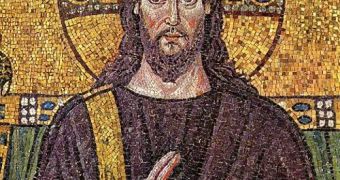A new scientific investigation has recently revealed that most American citizens believe that God plays a very important part in their lives. They think that divine power helps them decide on their everyday problems, and also that it inspires them in their choices. The US citizens also believe that God has a vested interest in their personal well-being, and that it plays a role in their everyday lives. However, the investigation notes that intelligent, more educated individuals, as well as those who earn more, are less likely to have the same beliefs, LiveScience reports.
One of the most interesting aspects of the study was that experts discovered many people, about 32 percent of respondents, were in complete agreement with the statement “There is no sense in planning a lot because ultimately my fate is in God's hands.” This is worrying, especially when considering that some 61 percent of people in the survey said that they believed God already determined the course and outcome of their lives. Sociologists say that these beliefs are very dangerous, as they give individuals a way of not taking responsibility for their own actions.
A very large proportion of study participants, about 71 percent, believed that the mishaps in their lives, as in all their problems, were only part of the “plan” God has for them. Along these same lines, 82 percent of Americans are of the opinion that God helps, guides and inspires them in making decisions. In fact, this last group says that it's dependent on divine power to do this. Two recent national surveys of Americans and their beliefs were centralized in this study, which was conducted by Canadian researchers at the University of Toronto. The team there was led by sociology professor Scott Schieman. Details appear in the March issue of the respected journal Sociology of Religion.
“Many of us might assume that people of higher social class standing tend to reject beliefs about divine intervention. However, my findings indicate that while this is true among those less committed to religious life, it is not the case for people who are more committed to religious participation and rituals,” explains the team leader.

 14 DAY TRIAL //
14 DAY TRIAL //